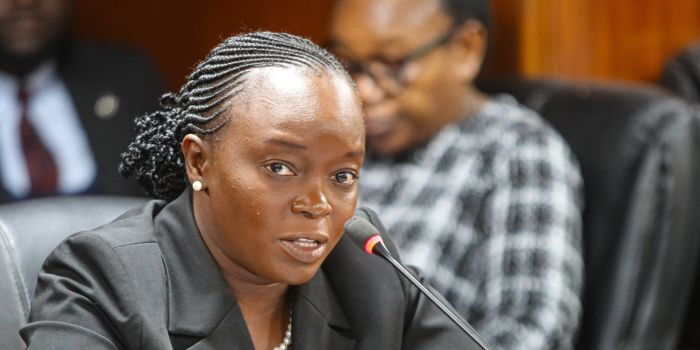Despite the many challenges that have faced the rollout of the new health scheme, the Social Health Authority (SHA), it has now emerged that there is another layer of fees that will affect research and even treatment of Kenyans.
This follows the government’s move to monetise patient data, which will be managed exclusively by government authorities. As the rollout of Taifa Care continues, our review of the proposed Digital Health Information Management Regulations 2024 shows that medical students and researchers will have to pay at least Ksh30,000 to access health data collected under the Social Health Insurance Fund, SHIF.
Kenyans.co.ke has reviewed the proposed digital data ecosystem and can now authoritatively report that central to the new framework is the Enterprise Service Bus (ESB). However, there will be two data banks, the National Health Data Bank and the County Health Data Banks.
In the regulations, all health facilities accredited by SHA will be required to store all patient data collected in the course of diagnosis and any other follow-up check in a National Health Data Bank.
Social Health Authority building in Nairobi
Photo
Wingubox
ESB will act as the backbone enabling data exchange among certified health providers, granting them access to the data held between the two banks. However, access to this system is not free.
According to the proposed bill, onboarding fees for entities range from Ksh2,000 to a staggering Ksh100,000, depending on the level of service. Furthermore, annual licenses are priced separately, with Level 6 facilities paying up to Ksh25,000 annually.
Under the regulations, data is aggregated and anonymised before sharing, but stakeholders worry about potential breaches. The penalties for unauthorised access or misuse are steep, with offences attracting penalties under the Digital Health Act of 2023.
Among the more controversial elements is the provision allowing private entities, such as health insurance firms, to access the data for claims management. Critics argue this opens the door to commercial exploitation. The regulations stipulate a flat fee of Ksh25 per insured life annually, but how these fees trickle down to the insured Kenyans remains unclear.
In the proposals from Health Cabinet Secretary Deborah Barasa, independent medical researchers are to pay Ksh30,000, while medical students pursuing master’s and doctorate degrees will part with Ksh5,000 and Ksh20,000, respectively.
For undergraduate students, they will pay Ksh500. However, research institutions will pay an even higher price with their access fee set at one per cent of their annual budget for research.
The regulations also establish mechanisms for suspending health data controllers from the ESB in cases of data breaches, misuse of access rights, or failure to comply with regulations. This provision aims to deter negligence and ensure that data access is granted only to responsible and compliant entities.
The establishment of a centralised system through the ESB and various registries aims to streamline healthcare operations and has the potential to reduce wait times in hospitals.
Another crucial aspect of the new system is the client registry, which will act as a single reference point for patient identification. This will allow for smoother transitions between different healthcare providers and potentially faster access to medical records.
Additionally, the regulations emphasise data sharing between healthcare providers, enabling better coordination of care and potentially leading to more informed treatment decisions.
However, the regulations also introduce potential challenges for patients. The introduction of fees for accessing the ESB and utilising shared resources could translate into increased costs for patients, particularly if these fees are passed down by healthcare providers.
Additionally, the extensive data collection and sharing mandated by the regulations raise concerns about patient privacy.
Health CS Dr Deborah Barasa, with PS Mary Muthoni and Director General Dr Patrick Amoth, inspecting key health facilities, including KNH, to evaluate preparedness for the Mpox outbreak, Monday, August 19.
Photo
MoH


